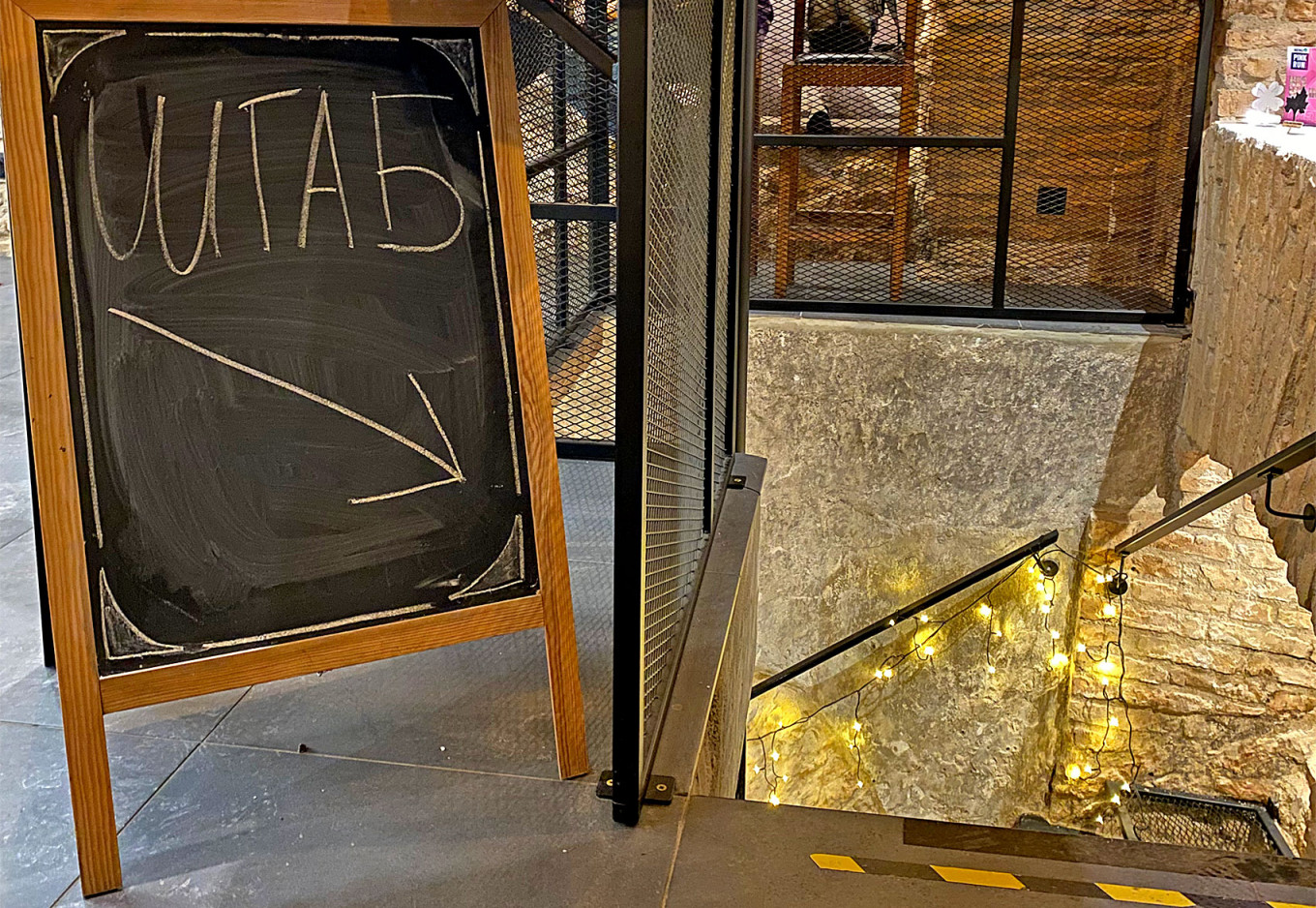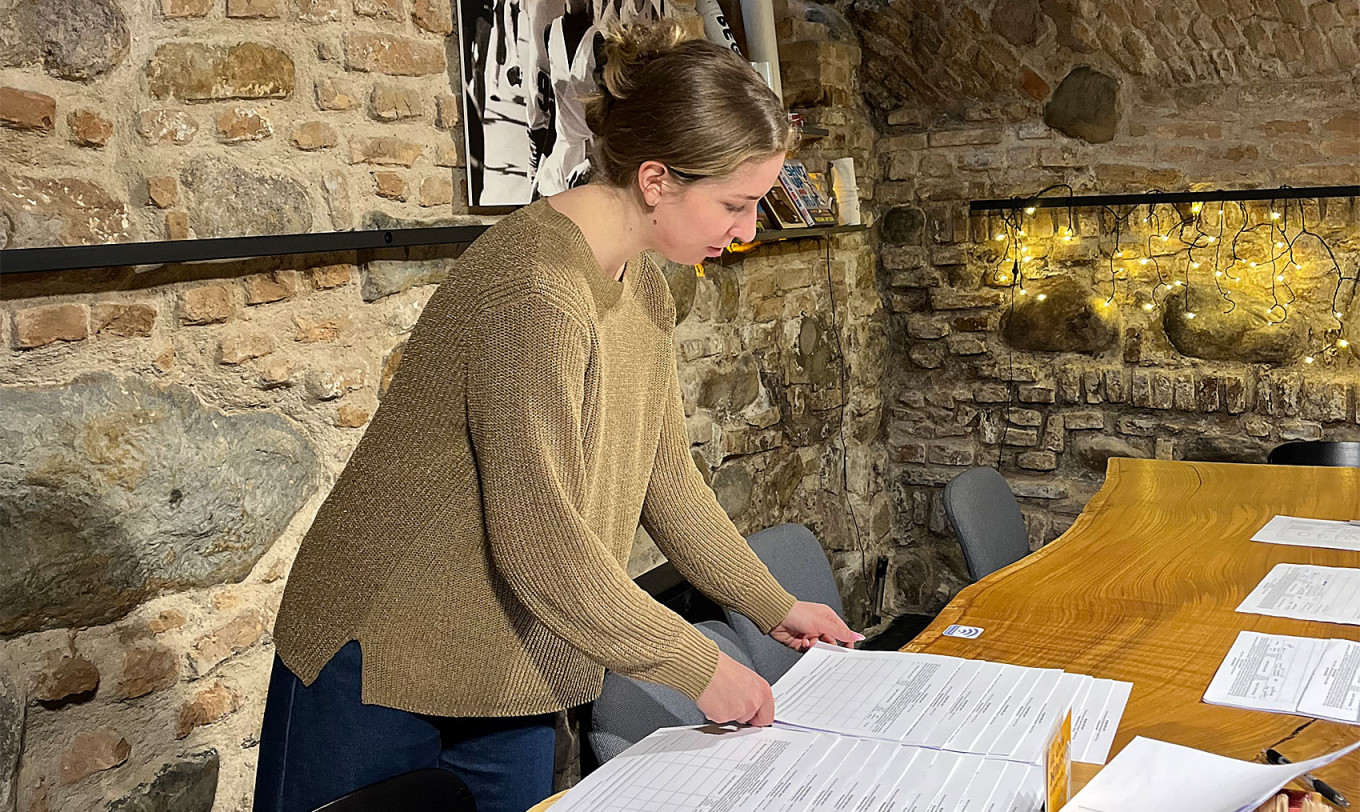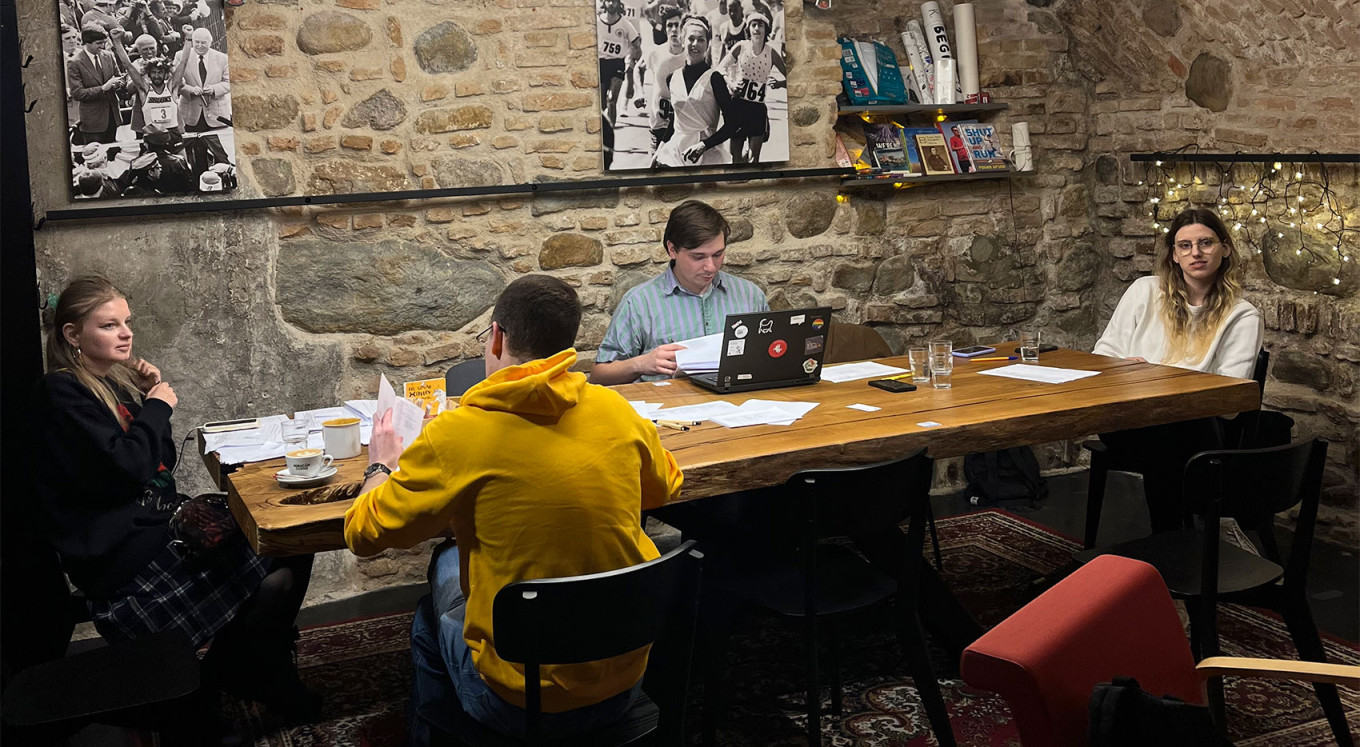VILNIUS, Lithuania — Not Only Coffee, a small coffee shop in the bohemian district of Užupis, has seen an unprecedented flow of visitors to its basement in the past two days.
The basement, which is usually ignored by visitors, now acts as a collection point for signatures endorsing Russian presidential hopeful Boris Nadezhdin, whose stance against the war in Ukraine has united thousands of Russians.
“I believe our efforts are useful, even if Nadezhdin won’t be approved by the electoral commission,” Yekaterina, the signature collection coordinator for Nadezhdin in the Lithuanian capital, told The Moscow Times.
“The anti-war community both in and outside of Russia has a chance to feel unity and strength now — and we must use it.”
Over the past week, the politician running from the Civic Platform party was struggling to collect the 100,000 signatures needed for Russia’s Central Election Commission (CEC) to approve his candidacy.
But by Tuesday, Nadezhdin’s headquarters said it had hit this goal after an influx of thousands willing to sign forms in his support, with long lines seen at his offices in cities across Russia and around the world.
In Vilnius, the large Russian diaspora joined the signature collection relatively late — and had to swiftly organize the process from scratch.
“I was complaining to my friend that despite so many opposition figures living here, there’s still nowhere to leave a signature. And then I thought, ‘I’m no worse than them, I can do it myself’,” Yekaterina told The Moscow Times.
“We gathered a team of friends during the night — and here we are.”

Yekaterina, like others interviewed for this article, declined to share her surname out of fears of prosecution by Russian authorities for opposing the war.
The main issue for the group was finding a location that could serve as a signature collection point.
One of their friends, Irina, the manager of Not Only Coffee, was quick to respond.
“First and foremost, we are Russian citizens,” Irina said. “I am and some of our staff are, at least. All the political topics from there are very relevant for us, so as soon as we heard that the guys needed help with the place, we volunteered.”
In two days, more than 200 people willing to leave a signature for Nadezhdin have visited the coffee shop’s basement, which the collection team jokingly nicknamed “the headquarters.”
Some were happily taking selfies, while others were trying to leave as soon as possible, apparently afraid of being spotted by Russian authorities in photos from the event.
While there were many young people, some of the passports presented to signature collectors were issued in the 1990s, their pages yellow from years of wear.
The biggest influx of visitors arrived soon after Georgy Alburov, the head of Alexei Navalny’s Anti-Corruption Foundation investigation department, came to leave his signature and shared a selfie on X, formerly Twitter.
“I called on people to sign a form for Nadezhdin, so it would be strange if I didn’t come myself,” Alburov told The Moscow Times. I’m not certain the [CEC] will allow him to go further, but we must at least make sure that there are enough signatures for them to let him join the run for the presidency.”
The prevailing sentiment among those who came to endorse Nadezhdin’s candidacy was that he likely won’t be allowed on the ballot, even if he collected enough signatures.
“I never thought I would vouch for Nadezhdin, and I don’t think he will get registered as a candidate. However, it’s still important to show that a big fraction of the Russian population still holds democratic views. And that current events resemble those happening in the late Soviet Union, when such movements emerged from seemingly nothing,” said Sergei, who came to Lithuania after the start of the war in February 2022.
“For us, the Russians abroad, this is a good time to feel unity with those who are still there — and just maybe change something.”

Yekaterina said she and her fellow organizers also worried that Lithuania, which requires Russians applying for a residence permit to sign a form acknowledging that Moscow-annexed Crimea is part of Ukraine, could respond negatively to their efforts.
“Nadezhdin’s position on the matter was unclear,” she said. “We’ve spent some time and haven’t found any concrete proof of him supporting the annexation, but we’ll still see if Lithuanian authorities will react. But we’ve gained support in local politics just in case — the Social Democrats even offered to hold the collection at their headquarters, but they were too late to respond.”
Many people coming to leave their signatures were motivated by the opportunity to show solidarity with anti-war Russians who remained inside the country.
“I absolutely don’t like Nadezhdin, but it’s not about him,” said Valeria, who left Russia for Lithuania after the Kremlin’s September 2022 mobilization. “It’s about showing the world that there is still political activity in Russia, that there are a lot of people who are against the war and [President Vladimir] Putin. And we want to help them to the best of our abilities.”

By the end of the second day, the line of people willing to leave their signatures stretched out the door.
“We might have left Russia, but right now you can see a rare moment of unity not only among the local diaspora but among Russians everywhere,” said Alexander, a signature collector.
“I believe that even domestic collectors will manage to get enough signatures, but with the help from abroad — from us, from Germany, from the U.S. — there will be twice as many signatures than we need.”
On Wednesday, the last day of the signature collection, Navalny’s wife Yulia Navalnaya visited Not Just Coffee to leave her signature.
“The more candidates, the better. Anyone not named Putin perfectly fits our campaign, ‘Vote for anyone except Putin’,” Navalny ally Ruslan Shaveddinov, who accompanied Navalnaya, told The Moscow Times of her decision.
“It’s hard to say if the [CEC] will let him through, but we must do everything we can for it to happen. And, to put it simply, the lines of people willing to sign we’re seeing are signing a form against the war, not for Nadezhdin. If he is not let through, the unrest might well transform into an actual protest.”
Even though Nadezhdin has received 100,000 signatures, the Russian diaspora continues to collect signatures to make sure there are no mistakes in the paperwork submitted to the CEC.
“Everyone is happy that there is finally a clear option to do something, to help [those] back home, and mend the differences between those who stay and those who’ve left,” said Ivan, a signature collection coordinator in London.
“I would describe the crowd’s mood as a timid hope mixed with joy.”
… we have a small favor to ask.
As you may have heard, The Moscow Times, an independent news source for over 30 years, has been unjustly branded as a “foreign agent” by the Russian government. This blatant attempt to silence our voice is a direct assault on the integrity of journalism and the values we hold dear.
We, the journalists of The Moscow Times, refuse to be silenced. Our commitment to providing accurate and unbiased reporting on Russia remains unshaken. But we need your help to continue our critical mission.
It’s quick to set up, and you can be confident that you’re making a significant impact every month by supporting open, independent journalism. Thank you.